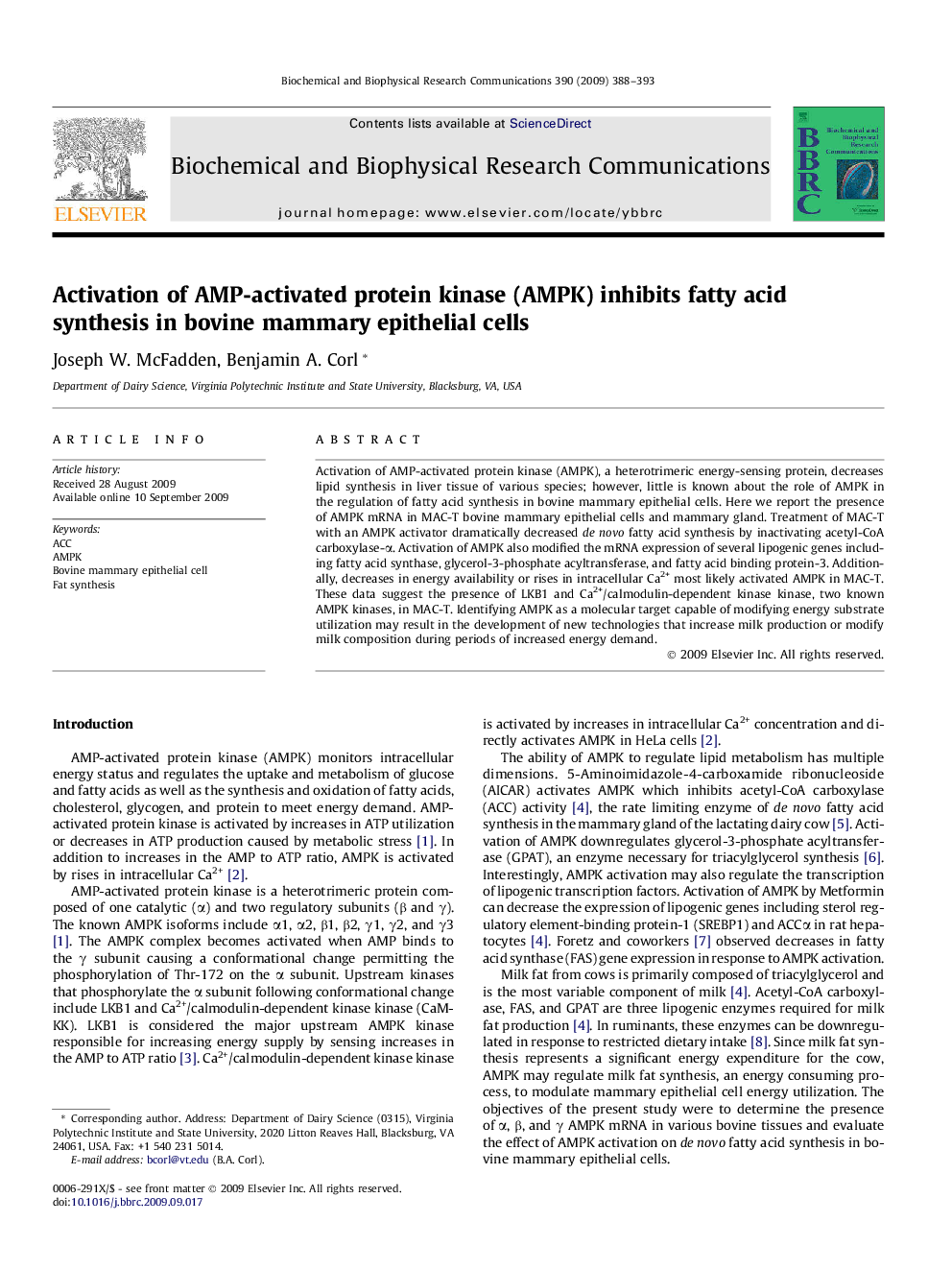| Article ID | Journal | Published Year | Pages | File Type |
|---|---|---|---|---|
| 1932793 | Biochemical and Biophysical Research Communications | 2009 | 6 Pages |
Activation of AMP-activated protein kinase (AMPK), a heterotrimeric energy-sensing protein, decreases lipid synthesis in liver tissue of various species; however, little is known about the role of AMPK in the regulation of fatty acid synthesis in bovine mammary epithelial cells. Here we report the presence of AMPK mRNA in MAC-T bovine mammary epithelial cells and mammary gland. Treatment of MAC-T with an AMPK activator dramatically decreased de novo fatty acid synthesis by inactivating acetyl-CoA carboxylase-α. Activation of AMPK also modified the mRNA expression of several lipogenic genes including fatty acid synthase, glycerol-3-phosphate acyltransferase, and fatty acid binding protein-3. Additionally, decreases in energy availability or rises in intracellular Ca2+ most likely activated AMPK in MAC-T. These data suggest the presence of LKB1 and Ca2+/calmodulin-dependent kinase kinase, two known AMPK kinases, in MAC-T. Identifying AMPK as a molecular target capable of modifying energy substrate utilization may result in the development of new technologies that increase milk production or modify milk composition during periods of increased energy demand.
